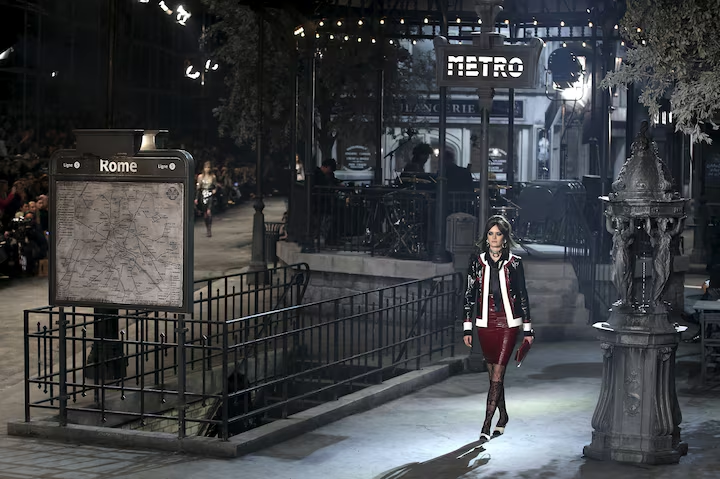Cinecitta, Europe’s largest film studio, is launching a bold plan to bring Italy back to the forefront of global cinema. At the same time, U.S. President Donald Trump has introduced a tariff proposal that could disrupt international film production.
The Rome-based studio—often called Hollywood on the Tiber—recently approved a five-year expansion plan. With funding from the EU’s post-COVID Recovery Fund, the strategy includes building new sound stages and expanding production capacity by 60% by 2026.
“We want to lead the game,” said Manuela Cacciamani, CEO of Cinecitta. “Cinecitta must be a factory that works at full capacity, with excellence as a minimum standard.”
Founded in 1937 during Benito Mussolini’s regime, Cinecitta has played host to more than 3,000 films. Renowned directors like Federico Fellini, Martin Scorsese, and Francis Ford Coppola have filmed iconic projects at the studio. Now, Cinecitta plans to reach €51.9 million ($58.8 million) in revenue by 2029, nearly doubling its projected 2024 income. After losing €11.6 million last year, the studio expects to turn that around with a €4.3 million profit.
However, Trump’s proposed 100% tariff on non-U.S. films could seriously threaten that momentum. He claims the measure will “save Hollywood from a very fast death.” Nevertheless, he has not provided any clear explanation of how the policy would work. As a result, the uncertainty has raised concern across the industry. These tariffs, if enacted, would directly affect American studios, which frequently rely on international locations for cost savings, skilled crews, and distinct scenery. Moreover, such a move could strain long-standing collaborations between Hollywood and foreign film hubs like Cinecitta.
Although a U.S. trade court blocked the tariffs, a federal appeals court reinstated them the following day. The back-and-forth has left the industry on edge.
“We’re monitoring this development with the utmost care,” said Cacciamani in an interview with Reuters. “The hope is that two historic powers of cinema—Italy and the U.S.—which owe so much to each other, will continue to cooperate.”
Italy’s tax incentives make it a magnet for filmmakers. Producers can receive up to 40% back on their expenses, making it one of the most competitive tax credit systems in the world. This benefit has attracted major productions like Emilia Perez and Conclave, both filmed at Cinecitta.
This year, Mel Gibson plans to film The Resurrection of the Christ at Cinecitta. The film is a sequel to his 2004 hit and could fall under Trump’s proposed tariff. Ironically, Gibson is one of Trump’s “Special Ambassadors” for revitalizing Hollywood, alongside Jon Voight and Sylvester Stallone.
Cinecitta now faces a dual challenge. It must push forward with its expansion while staying agile in response to global policy shifts. With its legacy, incentives, and growing demand, Cinecitta stands ready to lead a new Italy film revival—if politics don’t get in the way.
READ: Sasha & Malia Obama Make Rare Party Appearance Together
